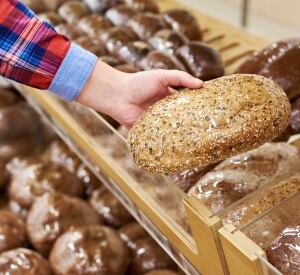With the UK still reeling from the shock result delivered seven days ago, when it comes to Brexit, the only thing bakers can be certain of is uncertainty.
But we can make educated guesses, about the impact, and here I look at just a few of the many factors that may shape the industry in the months and years to come.
Let’s start by assuming the UK does leave the European Union - something a growing number of observers doubt - and let’s assume the British economy is in for a rough ride - something fewer observers doubt.
Bread would, arguably, be insulated from some of the trading effects of Brexit as it is primarily locally produced and consumed. Certainly, more so than producers that rely on imported fresh produce, for example.
Home-grown wheat
According to the National Association of British and Irish Flour Millers, about 85% of the wheat used by UK flour millers is home-grown, though this quantity depends on the quality of the UK harvest.
Canada is a main source of imported wheat and is generally imported for bread-making as it works well in a blend with UK wheats. But there is some exposure to EU imports; primarily through Germany and France, with soft French wheat typically used in French-style products.
And when it comes to exporting bread to the EU, while not insignificant, exports are relatively small given the £3.5bn value of the UK bakery market.
A staple food
With the fallout of the Brexit vote widely expected to hit British consumers in the pocket, bread’s position as a staple British food means it may fare better than more indulgent categories.
As analysts Euromonitor put it: “Those categories that will be most affected will be the discretionary items. Staples are not driven by changes in income to the same extent.”

According to Euromonitor predictions, the slowdown in baked goods will be less marked than that of biscuits and snack bars, for example.
In addition to potentially being hit harder than bread by a drop in discretionary spend, sweet baked goods may be more exposed to increases in ingredients costs.
Rise in ingredients costs
According to Chris Ormrod of UK manufacturer Ministry of Cake, the prices of some of its key ingredients increased by a third overnight on the day of the referendum.
“Our job now is to deal with the situation as we find it,” he said at the time. “In the short term, the fluctuation of the pound means some of our key ingredients coming from Europe will increase in price, but we hope that evens out in the long term.”
But in the long term, suggested one senior baking industry executive, is the risk that a weak pound compared to the euro and dollar will impact the capital investment that is often essential for businesses to keep pace with the changing demands of bakery consumers.
Staffing will be another concern, as many bakery businesses rely on migrant staff, and may at some point have to address the impact of changes to immigration policy.
Immigration policy
In its wide-ranging report on the implications of the referendum for the grocery industry – recommended reading for any BakeryandSnacks reader – grocery industry trade body IGD looks at possible implications.
In a worst-case scenario, it suggests, the UK adopts an independent immigration policy intended to limit population growth while changing the benefit system and making the UK less attractive for incoming workers - resulting in an abrupt slowdown in immigration. IGD also looks at more positive outcomes for employers, such as adoption of a policy based on an Australian-type ‘points’ system that emphasizes skills that would push up wages for some roles but help stimulate spending and growth.

Just as relevant to bakers as the impact of the Brexit vote on their own businesses, is the effect it has on its customers – be that retailers or foodservice operations – and on their customers’ customers.
Impact on retail and foodservice
Analysts Kantar Retail is encouraging manufacturers to be prepared to help their customers tackle the situation by taking steps including:
- Staying in touch with changing shopper values, particularly those to finances and investments
- Building plans focused on helping retailers make a smooth transition
- Managing the transition away from European sourcing supply chains
- Preparing a transition team to help manage and coordinate the transition
Such advice makes it clear that, while it may be some time before we can say what effect the Brexit vote will have on bakery, there is action manufacturers can be taking to help prepare themselves for the inevitable changes.
After all, the last week has brought the industry enough shocks to last it a while.
